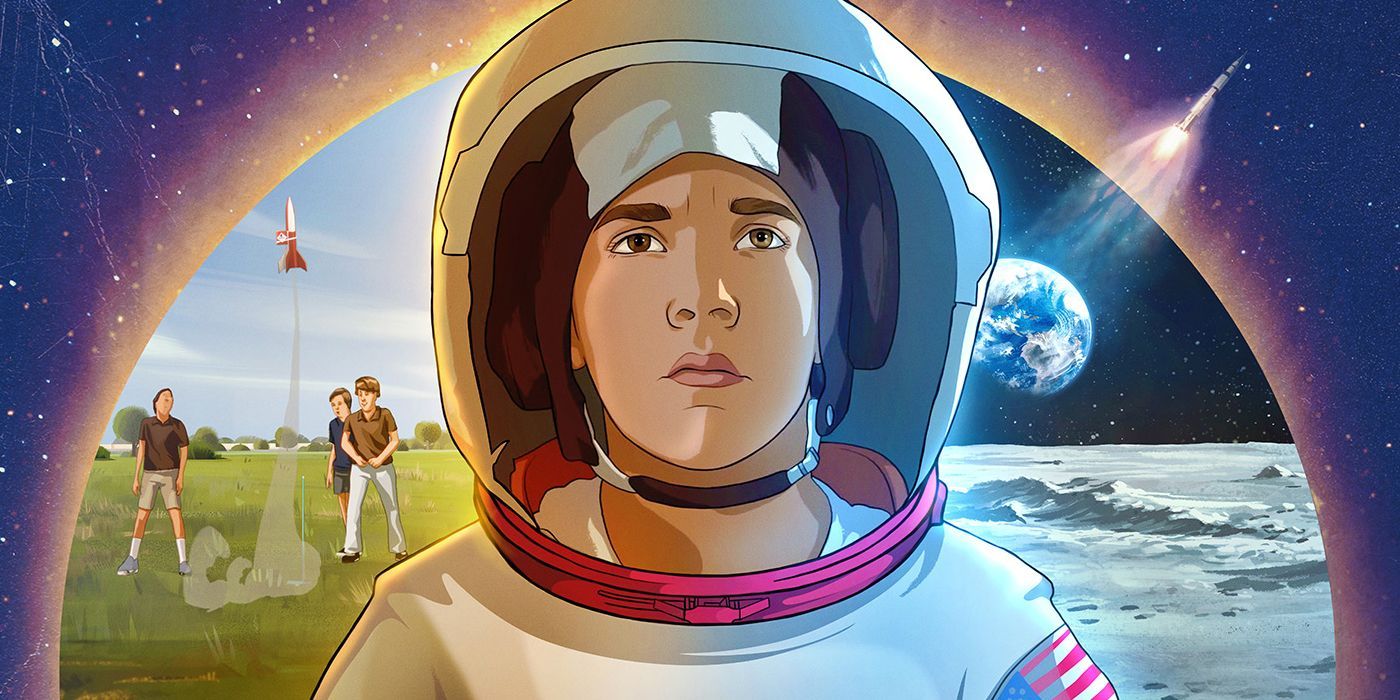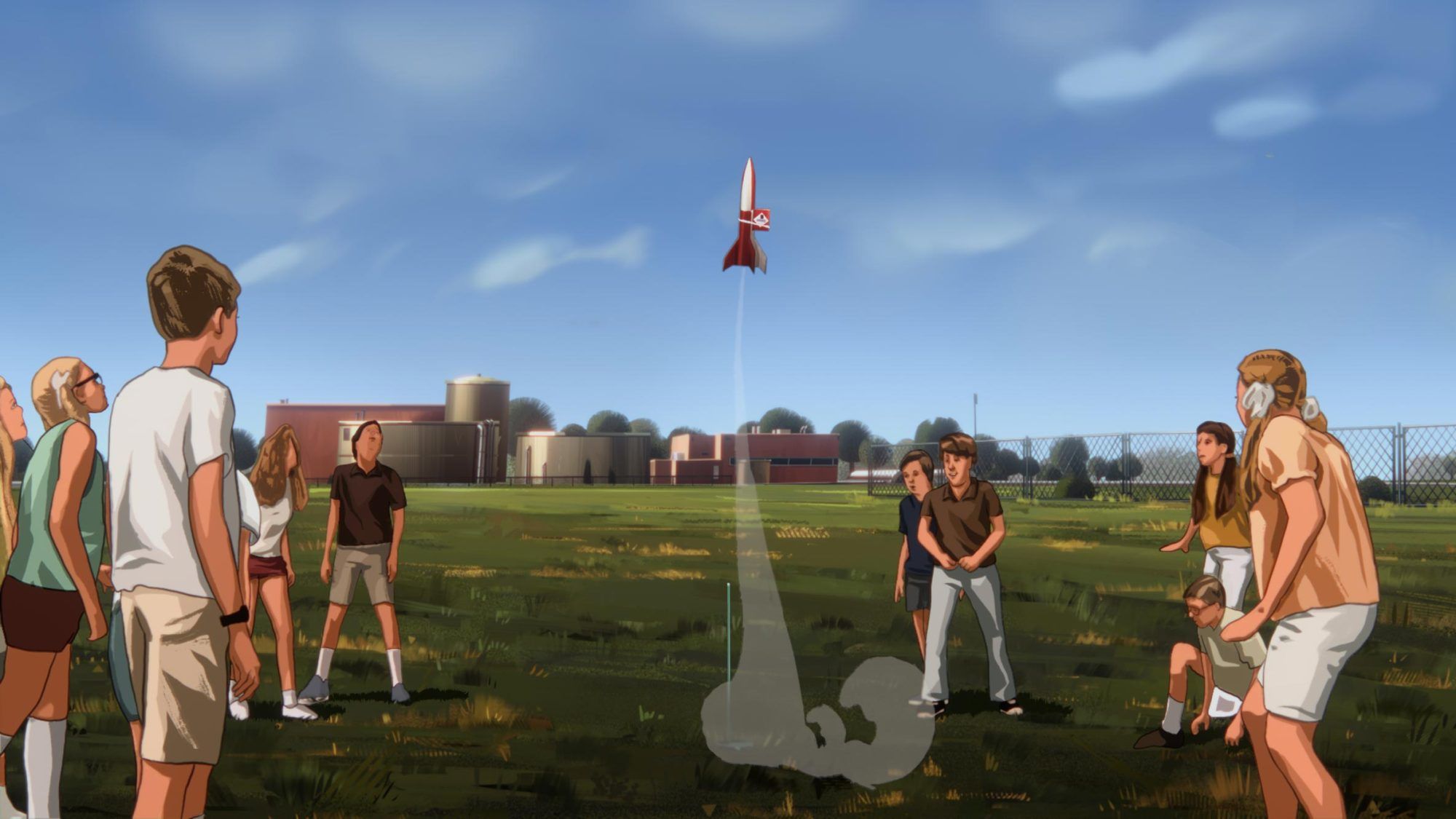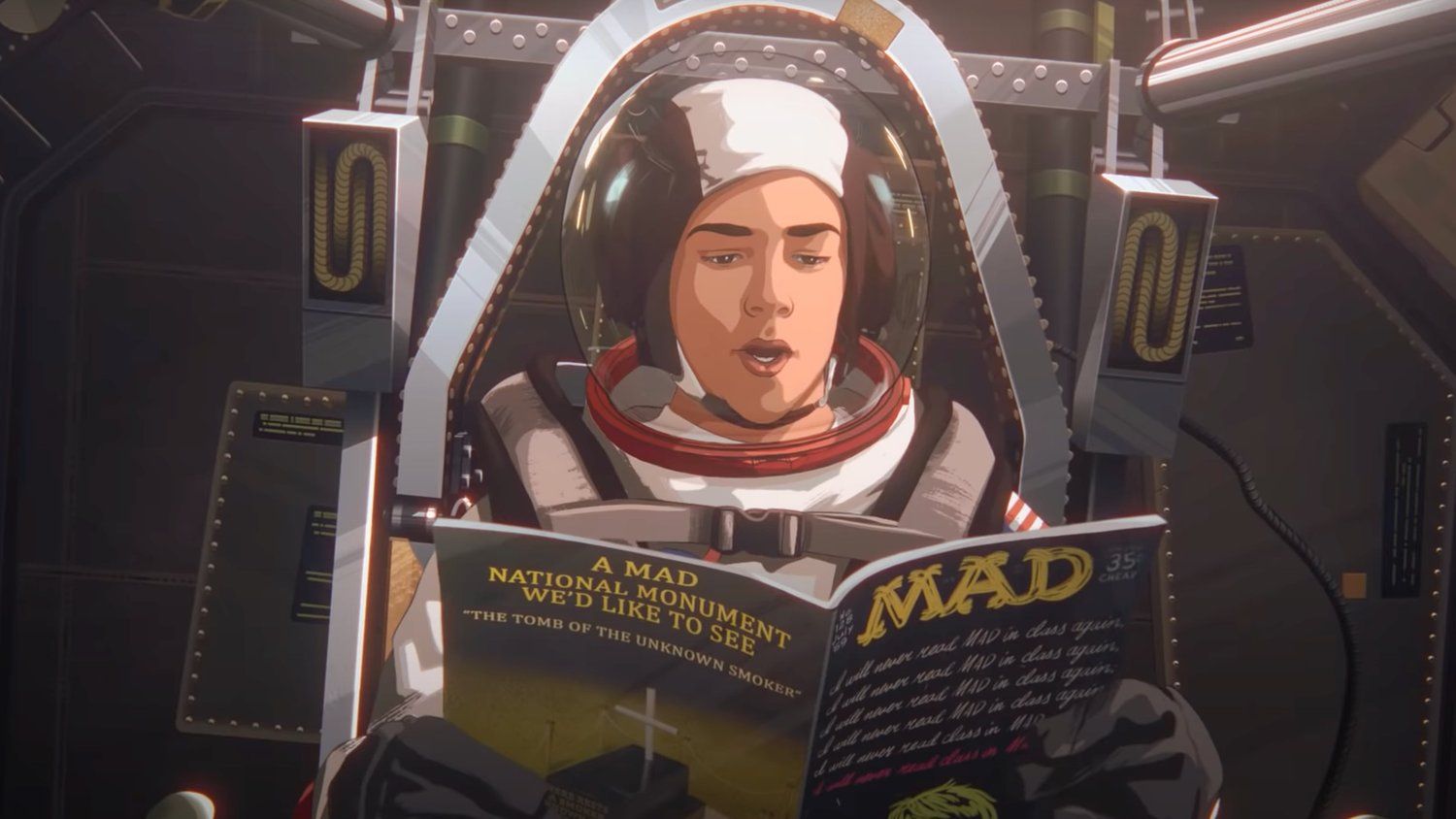In films like Waking Life and Boyhood, Richard Linklater has demonstrated a gift for dialogue and directing so naturalistic it sometimes feels like he's directing a documentary. Surrealistic animated dreamscapes or recognizable stars remind the viewer of the fictional basis for these movies. Apollo 10 1/2: A Space Age Childhood, Linklater's new film for Netflix, combines the rotoscope animation techniques of Waking Life with Boyhood's observation of childhood for a nostalgic tale sure to delight audiences.
Half of Apollo 10 1/2: A Space Age Childhood feels as real as anything Linklater's ever made, but the other half is pure fantasy. The movie focuses on a young boy's dream of being selected to pilot a top-secret Apollo mission months before Neil Armstrong and Buzz Aldrin actually land on the moon. How this fictional plot is integrated into the rest of Apollo 10 1/2's relatively plotless stream-of-consciousness reflections on growing up in 1960s Houston is likely to be the most divisive aspect of this generally charming, easily likable film.
Apollo 10 1/2: A Space Age Childhood starts in the fantasy realm, with 10-year-old Stanley being recruited by NASA and beginning his training. Suddenly, there's a dramatic freeze-frame, and narration from a now grown-up Stanley (voiced by Jack Black, reuniting with Linklater after memorable turns in School of Rock and Bernie) eases viewers into the format of the rest of the film. Viewers are then treated to slice-of-life moments accompanied by nostalgic-yet-critical adult narration about childhood in the 1960s.
Covering everything from parenting and political issues to musical tastes and lots and lots of TV, this long freeform sequence is as compelling as any of Linklater's great, more outré films. Many of the details of the characters are fictionalized (Linklater informed the crowd at the New York International Children's Film Festival that his dad was neither a NASA employee nor as much of a cheapskate as the dad in this film), but the cumulative effect of this historic recreation feels like it's been pulled straight from memory.
As these real memories drag on, however, viewers may grow impatient to get back to the fantasy story of the 10-year-old NASA recruit. Once the movie eventually returns to the childhood story in advance of the actual moon landing, the fantasy and reality segments become more closely intertwined, making for a strong final act. Perhaps the story might have flowed better had the fantasy elements been introduced midway through, similar to the genre shift in the final third of Once Upon a Time in Hollywood. This would have avoided the feeling of abandoning the premise for the movie's middle, but that also might have left it without an immediate hook for younger viewers.
Using more traditional hand-drawn frames than Linklater's previous two rotoscoped films (Waking Life and A Scanner Darkly), Apollo 10 1/2: A Space Age Childhood is a visually stunning movie. The mostly-unknown child actors, led by Milo Coy as Stanley, perform well beneath the animation. Zachary Levi and Glen Powell are funny as a pair of NASA scientists, and Jack Black's voiceover work is always a delight. This is a quirky movie without a traditional narrative structure, but it offers plenty for viewers both young and old to enjoy.
Apollo 10 1/2: A Space Age Childhood premieres on Netflix and in select theaters on April 1.



